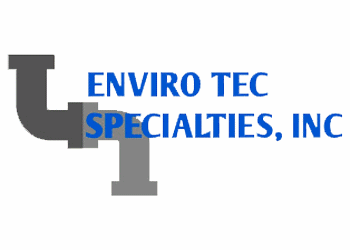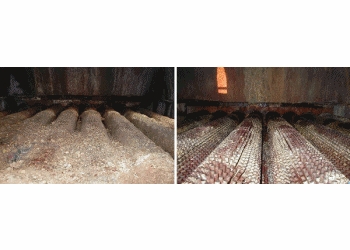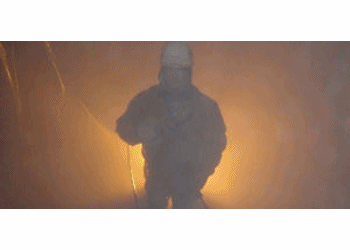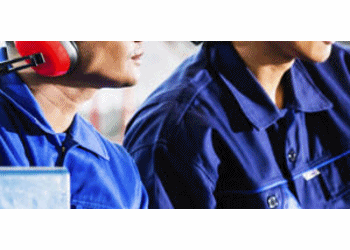Fin Fan Cooler Texas City Texas
Fin Fan Cooler Texas City Texas
A 2007 Scottish Government review of scrutiny of public services (the Crear Review, 2007 defined inspection of public services as “… periodic, targeted scrutiny of specific services, to check whether they are meeting national and local performance standards, legislative and professional requirements, and the needs of service users.” Fin fan cooler Texas City Texas

Fin Fan Cooler Texas City Texas
A surprise inspection tends to have different results than an announced inspection. Leaders wanting to know how others in their organization perform can drop in without warning, to see directly what happens. If an inspection is made known in advance, it can give people a chance to cover up or to fix mistakes. This could lead to distorted and inaccurate findings. A surprise inspection, therefore, gives inspectors a better picture of the typical state of the inspected object or process than an announced inspection. It also enhances external confidence in the inspection process. See section 4.12 of the Crear report. Fin fan cooler Texas City Texas
Due to the many variables involved, selecting optimal heat exchangers is challenging. Hand calculations are possible, but many iterations are typically needed. As such, heat exchangers are most often selected via computer programs, either by system designers, who are typically engineers, or by equipment vendors. Fin fan cooler Texas City Texas
To select an appropriate heat exchanger, the system designers (or equipment vendors) would firstly consider the design limitations for each heat exchanger type. Though cost is often the primary criterion, several other selection criteria are important:
Temperature ranges Fin fan cooler Texas City Texas
Product mix (liquid/liquid, particulates or high-solids liquid) Fin fan cooler Texas City Texas
Pressure drops across the exchanger Fin fan cooler Texas City Texas
Fluid flow capacity Fin fan cooler Texas City Texas
Cleanability, maintenance and repair Fin fan cooler Texas City Texas
Materials required for construction Fin fan cooler Texas City Texas Ability and ease of future expansion Fin fan cooler Texas City Texas
Material selection, such as copper, aluminum, carbon steel, stainless steel, nickel alloys, ceramic, polymer, and titanium. Fin fan cooler Texas City Texas
Small-diameter coil technologies are becoming more popular in modern air.
Choosing the right heat exchanger (HX) requires some knowledge of the different heat exchanger types, as well as the environment where the unit must operate. Typically in the manufacturing industry, several different types of heat exchangers are used for just one processor system to derive the final product. For example, a kettle HX for pre-heating, a double pipe HX for the ‘carrier’ fluid and a plate and frame HX for final cooling. With sufficient knowledge of heat exchanger types and operating requirements, an appropriate selection can be made to optimize the process. Fin fan cooler Texas City Texas

Fin Fan Cooler Texas City Texas
Monitoring and maintenance Fin fan cooler Texas City Texas
Online monitoring of commercial heat exchangers is done by tracking the overall heat transfer coefficient. The overall heat transfer coefficient tends to decline over time due to fouling.
U=Q/AΔTlm Fin fan cooler Texas City Texas
By periodically calculating the overall heat transfer coefficient from exchanger flow rates and temperatures, the owner of the heat exchanger can estimate when cleaning the heat exchanger is economically attractive. Fin fan cooler Texas City Texas
Integrity inspection of plate and tubular heat exchanger can be tested in situ by the conductivity or helium gas methods. These methods confirm the integrity of the plates or tubes to prevent any cross contamination and the condition of the gaskets.
Mechanical integrity monitoring of heat exchanger tubes may be conducted through Nondestructive methods such as eddy current testing. Fin fan cooler Texas City Texas
Fouling Fin fan cooler Texas City TexasMain article: Fouling Fin fan cooler Texas City Texas
A heat exchanger in a steam power station contaminated with macrofouling.
Fouling occurs when impurities deposit on the heat exchange surface. Deposition of these impurities can decrease heat transfer effectiveness significantly over time and are caused by:
Low wall shear stress Fin fan cooler Texas City Texas
Low fluid velocities Fin fan cooler Texas City Texas
High fluid velocities Fin fan cooler Texas City Texas
Reaction product solid precipitation Fin fan cooler Texas City Texas

Fin Fan Cooler Texas City Texas
Precipitation of dissolved impurities due to elevated wall temperatures Fin fan cooler Texas City Texas
The rate of heat exchanger fouling is determined by the rate of particle deposition less re-entrainment/suppression. This model was originally proposed in 1959 by Kern and Seaton. Fin fan cooler Texas City Texas
Fin fan cooler Texas City TexasCrude Oil Exchanger Fouling. In commercial crude oil refining, crude oil is heated from 21 °C (70 °F) to 343 °C (649 °F) prior to entering the distillation column. A series of shell and tube heat exchangers typically exchange heat between crude oil and other oil streams to heat the crude to 260 °C (500 °F) prior to heating in a furnace. Fouling occurs on the crude side of these exchangers due to asphaltene insolubility. The nature of asphaltene solubility in crude oil was successfully modeled by Wiehe and Kennedy. The precipitation of insoluble asphaltenes in crude preheat trains has been successfully modeled as a first order reaction by Ebert and Panchal who expanded on the work of Kern and Seaton.
Cooling Water Fouling. Cooling water systems are susceptible to fouling. Cooling water typically has a high total dissolved solids content and suspended colloidal solids. Localized precipitation of dissolved solids occurs at the heat exchange surface due to wall temperatures higher than bulk fluid temperature. Low fluid velocities (less than 3 ft/s) allow suspended solids to settle on the heat exchange surface. Cooling water is typically on the tube side of a shell and tube exchanger because it’s easy to clean. To prevent fouling, designers typically ensure that cooling water velocity is greater than 0.9 m/s and bulk fluid temperature is maintained less than 60 °C (140 °F). Other approaches to control fouling control combine the “blind” application of biocides and anti-scale chemicals with periodic lab testing.
Maintenance Fin fan cooler Texas City Texas
Plate and frame heat exchangers can be disassembled and cleaned periodically. Tubular heat exchangers can be cleaned by such methods as acid cleaning, sandblasting, high-pressure water jet, bullet cleaning, or drill rods. Fin fan cooler Texas City Texas
In large-scale cooling water systems for heat exchangers, water treatment such as purification, addition of chemicals, and testing, is used to minimize fouling of the heat exchange equipment. Other water treatment is also used in steam systems for power plants, etc. to minimize fouling and corrosion of the heat exchange and other equipment. Fin fan cooler Texas City Texas

Fin Fan Cooler Texas City Texas
A variety of companies have started using waterborne oscillations technology to prevent biofouling. Without the use of chemicals, this type of technology has helped in providing a low-pressure drop in heat exchangers. Fin fan cooler Texas City Texas
In nature Fin fan cooler Texas City Texas
Humans Fin fan cooler Texas City Texas
The human nasal passages serve as a heat exchanger, which warms air being inhaled and cools air being exhaled. Its effectiveness can be demonstrated by putting the hand in front of the face and exhaling, first through the nose and then through the mouth. Air exhaled through the nose is substantially cooler. This effect can be enhanced with clothing, by, for example, wearing a scarf over the face while breathing in cold weather.
In species that have external testes (such as humans), the artery to the testis is surrounded by a mesh of veins called the pampiniform plexus. This cools the blood heading to the testis, while reheating the returning blood.
Birds, fish, marine mammals Fin fan cooler Texas City Texas
Countercurrent exchange conservation circuit Fin fan cooler Texas City Texas
Further information: Countercurrent exchange in biological systems Fin fan cooler Texas City Texas
“Countercurrent” heat exchangers occur naturally in the circulation system of fish, whales and other marine mammals. Arteries to the skin carrying warm blood are intertwined with veins from the skin carrying cold blood, causing the warm arterial blood to exchange heat with the cold venous blood. This reduces the overall heat loss in cold waters. Heat exchangers are also present in the tongue of baleen whales as large volumes of water flow through their mouths. Wading birds use a similar system to limit heat losses from their body through their legs into the water.
Carotid rete Fin fan cooler Texas City Texas
The carotid rete is a counter-current heat exchanging organ in some ungulates. The blood ascending the carotid arteries on its way to the brain, flows via a network of vessels where heat is discharged to the veins of cooler blood descending from the nasal passages. The carotid rete allows Thomson’s gazelle to maintain its brain almost 3 °C (5.4 °F) cooler than the rest of the body, and therefore aids in tolerating bursts in metabolic heat production such as associated with outrunning cheetahs (during which the body temperature exceeds the maximum temperature at which the brain could function).
Call Now:+1-856-678-4004
envirotec@tiplus.com
(Texas City, Texas) (Baton Rouge, Louisiana)
Nueva Orleans• Baton Rouge• Shreveport• Lafayette• Lake Charles• Kenner• Bossier City• Monroe• Alexandria• Houma• Nueva Iberia• Slidell• Ruston• Sulphur• Hammond• Natchitoches• Gretna• Chalmette• Opelousas• Zachary• Thibodaux• Pineville• Baker• Crowley• Minden• West Monroe• Morgan City• Abbeville• Bogalusa• Mandeville• Bastrop• DeRidder• Eunice• Jennings• Denham Springs• Gonzales• Harahan • Houston• San Antonio• Dallas• Austin• Fort Worth• El Paso• Arlington• Corpus Christi• Plano• Laredo• Lubbock• Garland• Irving• Amarillo• Grand Prairie• Brownsville• Pasadena• Mesquite• McKinney• McAllen• Killeen• Waco• Carrollton• Beaumont• Abilene• Frisco• Denton• Midland• Wichita Falls• Odessa• Round Rock• Richardson• Tyler• Lewisville• College Station• San Angelo• Pearland• Texas City Texas

